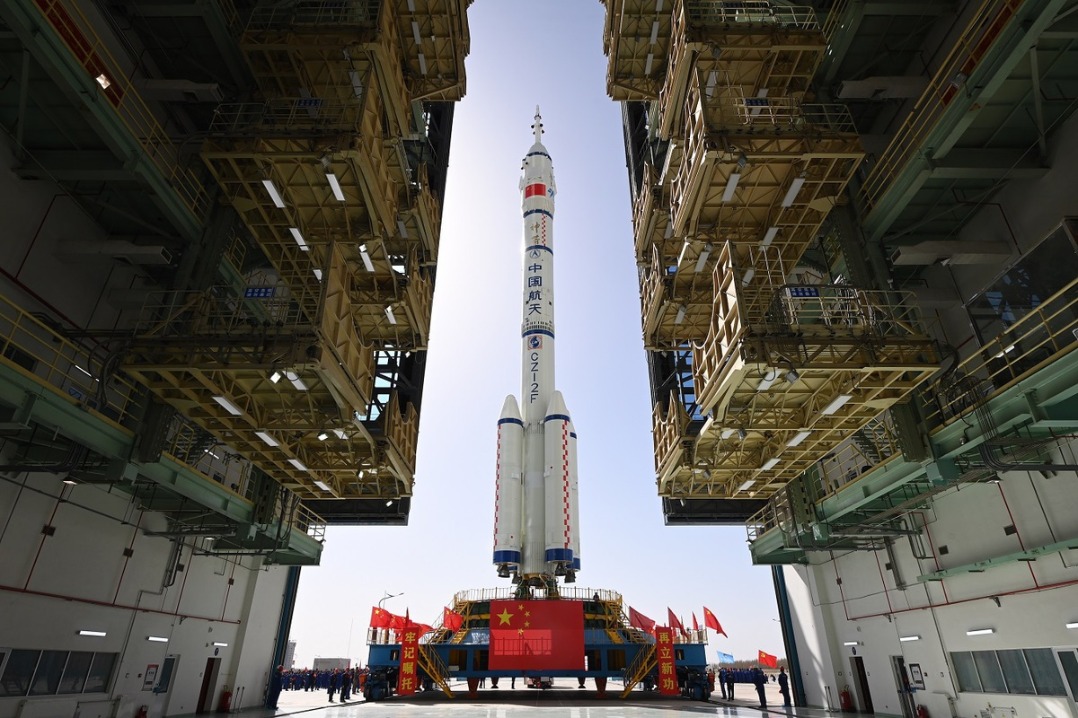Rising prices far from only economic threat
By WANG MINGJIE in London | China Daily | Updated: 2022-08-05 10:12

Experts keep eye on stagflation risk, with fears for jobs amid stagnation
Surging inflation has triggered write-downs to forecasts for the global economy as high prices hit retail sales and erode consumer sentiment. But some experts are bracing for the arrival of a growth-damaging phenomenon known as stagflation.
Stagflation is characterized by slow economic growth and relatively high unemployment-or economic stagnation-accompanied by rising prices. Two of these conditions are familiar to economists and consumers alike in 2022, even as the jobs market is holding up fairly well in major economies-for now.
The International Monetary Fund last month slashed the global growth forecast for this year to 3.2 percent, down by 0.4 percentage point from its projection in April. Looming large in the growth downgrades by the IMF and other agencies is inflation.
Global inflation has been revised up due to food and energy prices, and is expected to reach 6.6 percent in advanced economies and 9.5 percent in emerging markets and developing economies this year-upward revisions of 0.9 and 0.8 percentage point respectively, the IMF said in its World Economic Outlook report.
John Beirne, vice-chair of research at think tank Asian Development Bank Institute, said stagflation risks may become a global concern if inflation keeps rising.
"High inflation in the EU and UK is increasing the cost of living for consumers and also weighing on business investment and overall sentiment," Beirne said in highlighting the impact of rising prices in the region most exposed to costlier energy arising from the Russia-Ukraine conflict.
With Europe's high inflation, "the growth outlook is weakened as a result, amplified due to high prevailing uncertainty in economic conditions," said Beirne, who is a former economist at the European Central Bank.
Britain's consumer price inflation hit a fresh 40-year high of 9.4 percent in June, according to data from the Office for National Statistics. The Bank of England, or BoE, said on Thursday that UK headline inflation is expected to peak at 13.3 percent in October.
The eurozone's annual inflation rate jumped to 8.9 percent in July, up from 8.6 percent in June, according to Eurostat, the statistical office of the European Union. In June 2021, the rate was 1.9 percent.
Multiple factors
Christopher Bovis, a professor of international business law at the University of Hull, said: "The main reason for the current spike in inflation in the UK and in the EU is the increase in commodity prices. Behind such increase rests the twofold cause of the recent global economic malfunction, the pandemic, and the escalation of the Russian-Ukrainian dispute."
Jim O'Neill, a former chief economist at Goldman Sachs and former UK Treasury minister, attributed expansive fiscal policy to support consumers during the pandemic and an era of pursuing so-called quantitative easing for a long time as two other factors behind the surging inflation.
"Monetary policy should have been tightened much sooner, and interest rates are still far too low," O'Neill said. "In theory, and historically, short-term interest rates should be close to the GDP growth trend, adjusted for inflation. So for the UK and the EU, probably at least double where they are."
Ricardo Amaro, a senior economist on the eurozone at Oxford Economics, said: "With services inflation set to remain high over the summer, we think core inflation will continue to be elevated for the rest of this year."
In its latest statement, Britain's statistics agency said retail sales fell 0.1 percent in June, following a fall of 0.8 percent in May. Sentiment in German business has cooled, falling to 88.6 points in July, down from 92.2 points in June, to its lowest level since June 2020, according to the Ifo Institute's index of business confidence.
In a move to combat inflation, central banks have been tightening monetary policies to stabilize inflationary trends. BoE on Thursday raised interest rates by the most in 27 years. The rate hike of three-quarters of a point pushes the bank's key interest rate to 1.75 percent. The ECB recently also raised its key interest rates for the first time in 11 years by 0.5 percentage point to zero percent.
Amaro warns about the risk of the ECB over-tightening. "For one, the inflation shock is generally driven by volatile components such as energy and food prices and supply-side factors, in which monetary policy has little impact," he said.
"Moreover, growth momentum is weakening and we expect the eurozone economy will be broadly stagnated during the winter months or worse, further signaling that the ECB tightening plans may involve difficult trade-offs," he added.























